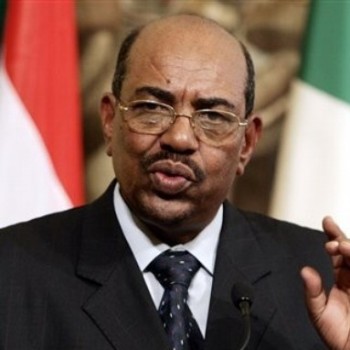Sudan’s Bashir planned visit to Mauritania kept under tight wraps
December 18, 2009 (PARIS) – The Sudanese government has continued to maintain silence over a visit by president Omer Hassan Al-Bashir to Mauritania in defiance to the arrest warrant issued against him by the International Criminal Court (ICC) on charges of war crimes in Darfur in western Sudan.

This is the first visit by a foreign head of state to Mauritania since Abdel Aziz won the presidential elections last July.
Mauritania is not a signatory to the Rome Statute treaty which forms the basis of the ICC and is therefore under no obligation to execute the arrest warrant for the Sudanese president.
The UN Security Council (UNSC) resolution 1593 which referred the Darfur case to the ICC urged non-ICC members to cooperate with the Hague tribunal.
A diplomatic source who asked not to be identified because he was not authorized to disclose the information, told Sudan Tribune that a senior official from the ICC prosecutor’s office travelled to Nouakchott this week and met with several high level Mauritanian officials.
The source declined to say if the visit was in relation to Bashir’s anticipated trip or whether the ICC is actively discouraging the trip.
Mauritania is a member of the African Union (AU) and the Arab League (AL) organizations, both of which has slammed Bashir’s arrest warrant and vowed not to cooperate with the ICC in apprehending him.
The diplomat said that the West African nation is moving closer to France and may not want to appear at odds with its former colonial power. This week Paris has decided to move the venue of the 25th France-Africa summit from Egypt to avoid inviting Bashir.
On Monday the international Francophone Organization (OIF) and during a meeting in the French capital lifted the suspension of Mauritania, saying the country has returned to constitutional order following the 18 July presidential election.
General Mohamed Ould Abdel Aziz was sworn in as president in August after a poll that opponents said was a fraud, but which France and others have said paved the way for re-engaging and providing an opportunity for Mauritania to gain a access to desperately needed credit.
The International Monetary Fund (IMF) said on Thursday it would give Mauritania at least $100 million in financial aid over the next three years. The new funding, which could be increased when put before the IMF board, follows a decision by the IMF in September to renew ties with the desert nation by unblocking $80 million in budgetary support that was frozen after the coup.
It is possible that Mauritania may end up reversing course on their decision to receive the Sudanese president. Last month, Turkey came under intense Western pressure to scrap an invitation to Bashir in order to take part in the summit of the Standing Committee for Economic and Commercial Cooperation (COMCEC) of the Organization of the Islamic Conference (OIC) in Istanbul.
Turkish media later reported that the presidency quietly worked behind the scene to convince Bashir not to attend and jeopardize its long-fought bid to join the European Union (EU). The Sudanese president ended up making a last minute decision to cancel his appearance and returned to Khartoum.
The secrecy surrounding the visit on the Sudanese side is also prompted by security concerns. The editor in chief of the independent Al-Sahafa newspaper Al-Nur Ahmed Al-Nur who accompanied Bashir in his trip to Egypt last month said that the Sudanese president used a “chartered flight from a close neighboring state” rather than one of the planes in his presidential fleet.
The presidential affairs minister Bakri Hassan Saleh told Al-Nur that all the planes in the fleet are undergoing maintenance. The Sudanese presidency currently has half a dozen jets in operation with a Russian Ilyushin-62 plane which is mainly used for foreign trips as it can fly for longer hours.
Al-Nur noted that an official from the presidential fleet told him prior to the trip that they occasionally resort to “camouflaging” for security reasons.
The BBC Arabic service quoting Sudanese sources in Istanbul, reported in November that the Sudanese 2nd Vice president Ali Osman Taha cautioned Bashir against the Turkey trip telling him that Israeli and Greek fighter jets may intercept his plane in midair and force him to land in a country where he could be extradited to The Hague.
Bashir is technically at risk from being forced to land if he crosses the airspace of a country that is signatory to the Rome Statute on his way to Mauritania such as Chad, Niger or Mali.
Fearing arrest, the Sudanese head of state has turned down several invitations in the last few months to attend events in Uganda, Nigeria, Venezuela, Denmark, Turkey, South Africa and US.
However, he also paid visits to a number of Arab and African countries since the indictment including Eritrea, Egypt, Libya, Qatar, Ethiopia, Zimbabwe and Saudi Arabia.
(ST)
